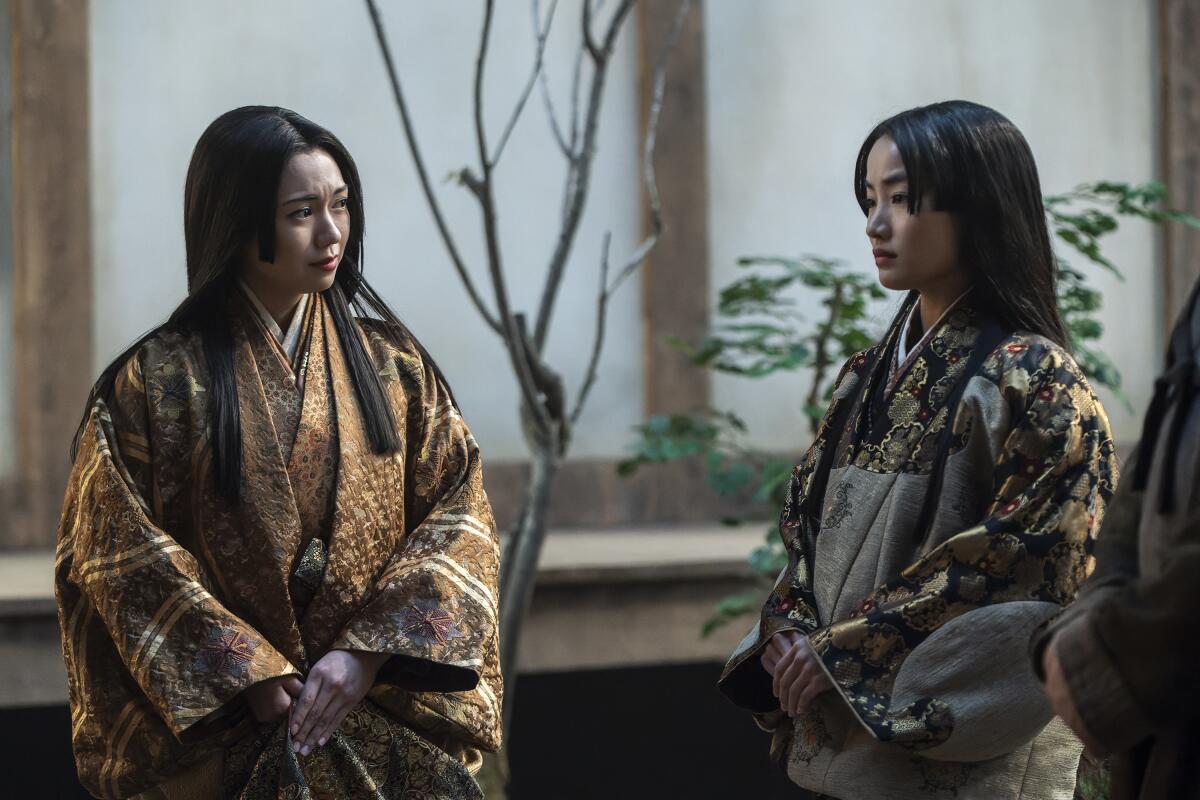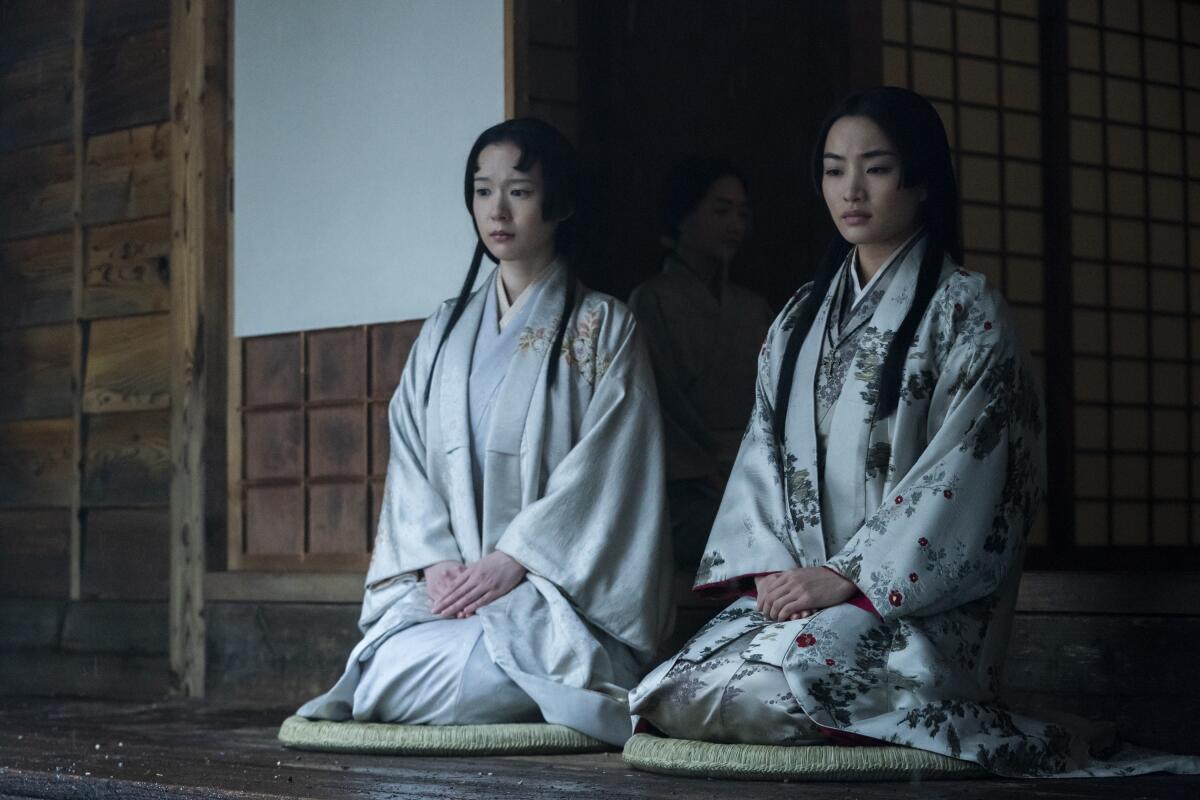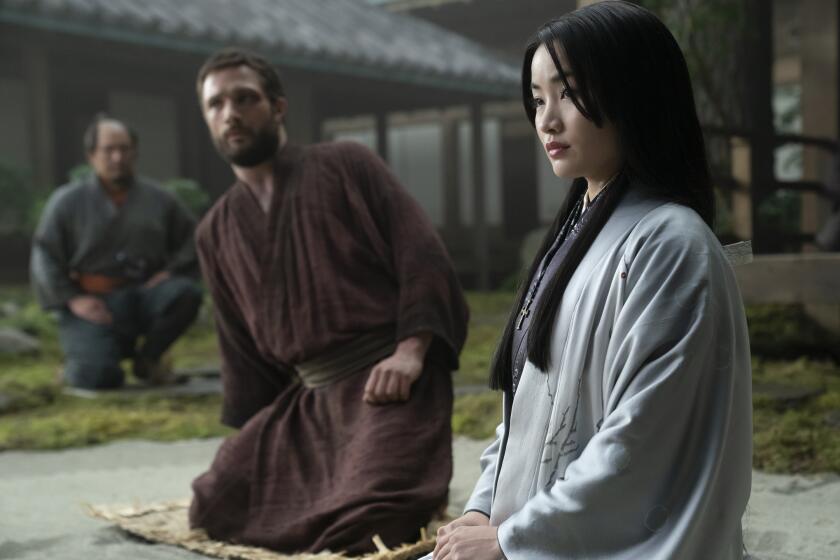The women in ‘Shōgun’ faced hardship in feudal Japan, but they still triumphed

This article contains spoilers for the FX series “Shōgun.”
In the sixth episode of “Shōgun,” Lord Toranaga asks Mariko about her childhood.
The warlord (portrayed by Hiroyuki Sanada) is curious to hear what his vassal (Anna Sawai) thinks turned her childhood friend Ochiba-no-kata (Fumi Nikaido), into his fierce adversary. The mother of the young heir Yaechiyo wants to see Toranaga dead.
After suggesting that fate and hardship are what forged Lady Ochiba into the woman she has become, Mariko also offers her lord some insight into the different motivations that drive men and women to fight.
“A man may go to war for many reasons,” says Mariko in Japanese. “Conquest, pride, power. But a woman is simply at war.”
Anna Sawai says she connected deeply with Lady Toda Mariko, her character in FX’s ‘Shogun,’ and that she was encouraged by the creators’ desire to avoid stereotypes of Japanese women.
Co-created by Justin Marks and Rachel Kondo, the 10-episode FX limited series centers on Toranaga’s political war and fate in feudal Japan. But the “Shōgun” finale, out now on Hulu, shows that the keys to Toranaga’s victory had been in understanding the individual wars the women in his orbit had been fighting all along.
In the final moments of the episode, Toranaga reveals that he has ensured his win even before taking to the battlefield. Thanks to Mariko’s sacrifice, Lady Ochiba gave her word that her son’s bannermen would stay out of the future battle between Toranaga and the Council of Regents — meaning Toranaga’s main foe Lord Ishido (Takehiro Hira) would be left to try to fight with no advantage (or allies).

Ochiba’s change of heart comes after Mariko was killed by Ishido’s scheming. Tiring of Ishido being outmaneuvered — and in deference to her childhood friend — Ochiba sets aside her grudge against Toranaga to ensure her son’s survival.
“Shōgun” has been touted for its commitment to authenticity to Japanese history and culture. Based on James Clavell’s bestselling novel, the series expanded the story to include the Japanese characters’ perspectives so they are not secondary to a white European protagonist’s adventure in a foreign land.
And in doing so, one of “Shōgun’s” most notable achievements is how it portrays Japanese women. Hollywood has a history of misrepresentation, tokenization and perpetuating lazy tropes when it comes to Asian women. “Shōgun” does not ignore the constraints women faced in feudal Japan, remaining historically accurate in that regard. Marriages were often arranged for political purposes and a woman’s life was in service to her father or husband. But the series shows that characters like Mariko, Ochiba and others figure out how to live (or die) on their own terms — namely through patience.
FX and Hulu’s limited series “Shōgun,” based on James Clavell’s novel about feudal Japan, is full of physical and personal conflicts reminiscent of “Game of Thrones.”
Throughout the series, Mariko struggled with her sense of purpose. The sole survivor of a disgraced noble family, Mariko’s past looms over her commitment to her duties as Toranaga’s vassal, a wife and a devout Catholic.
And while she dutifully performed her role as a translator, it is in “Shōgun’s” penultimate episode that Mariko comes to understand and embrace her destiny. Under Toranaga’s orders, she heads into the Council of Regents’ domain to force Ishido’s hand and it is because of her actions and death that his captives were freed and many other lives were saved. In her last mission, Mariko finds her purpose in her life and death and is able to deliver a victory to her Lord that no man nor army could.
“The women of our story, they have limited agency, they have strictures, they have constraints in life that can limit how they express their lives,” Kondo previously told The Times. But “on its basic, fundamental level, [this] is a story about female friendship, childhood friendship … two women who have deep feelings that end up dictating how the tide of a war will go.”

Even Ochiba, the most powerful woman in the country, had to plan her moves within the social constraints of her time. After a privileged childhood, she had to suffer her own share of hardships after her father was killed. According to her, she willed herself into her position by enduring whatever she needed to give birth to the previous ruler’s heir and she’s committed to protecting her son.
Mariko and Ochiba are not the only ones who had to wait and endure until the right moment. Fuji, a young mother mourning her husband and only child, followed Toranaga’s directives until she was given permission to become a nun. Gin, a former courtesan who runs a local brothel, bides her time until she is able to negotiate with Toranaga an expansion of her business that would evolve the profession.
Women’s stories can often be sidelined for the sake of historical accuracy. Or worse, they can be limited to highlighting the cruelty and ignorance of that time. The women in “Shōgun” do not have it easy, but they display a different kind of strength than is usually celebrated in Hollywood epics and are shown with the dignity they deserve.
More to Read
The complete guide to home viewing
Get Screen Gab for everything about the TV shows and streaming movies everyone’s talking about.
You may occasionally receive promotional content from the Los Angeles Times.









